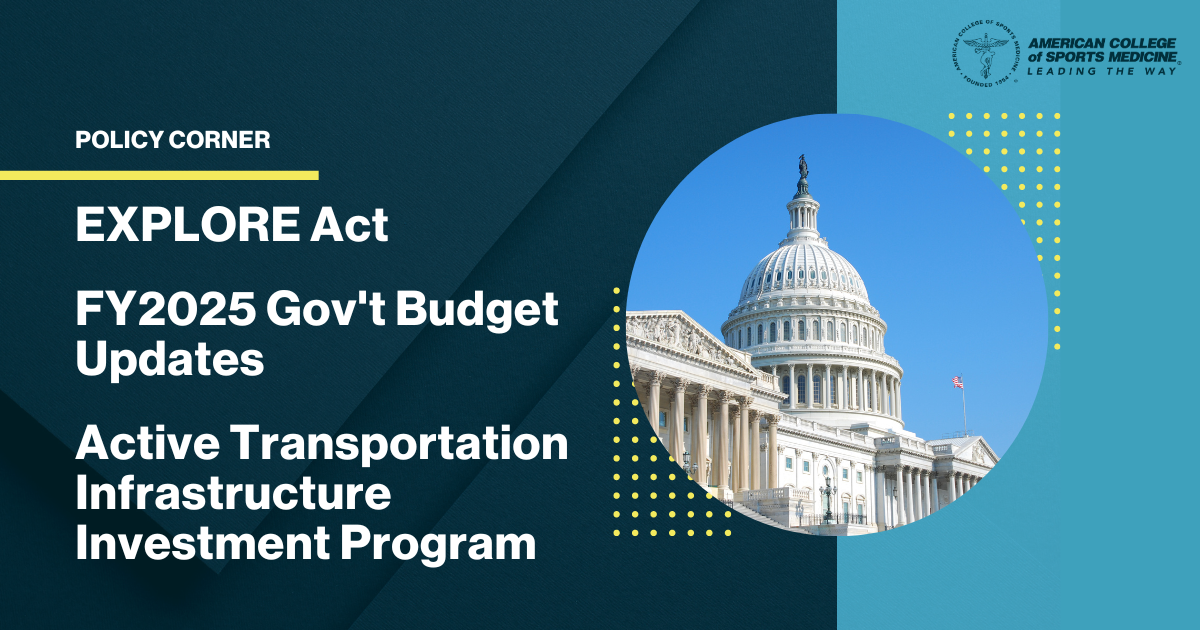|
April
12, 2024
 EXPLORE ACT
EXPLORE ACT
In a significant milestone for outdoor enthusiasts nationwide, the House of Representatives has passed the groundbreaking EXPLORE Act by a resounding voice vote. This innovative policy package represents a monumental step forward in enhancing outdoor recreation experiences on public lands and waters across the United States.
Crafted as a bipartisan effort, the EXPLORE Act, championed by Congressman Westerman (R-AR) and Congressman Grijalva (D-AZ), Chair and Ranking Member of the House Natural Resources Committee, sets a precedent in prioritizing the management and utilization of public lands and waters for recreational purposes. It offers a comprehensive framework for maximizing the potential of these spaces to enrich outdoor experiences.
Key Highlights of the EXPLORE Act:
• Biking on Long Distance Trails Act (BOLT): A pivotal initiative aimed at fostering sustainable long-distance mountain biking trails, facilitating collaboration between land management agencies, mountain bikers, and stakeholders to promote trail development.
• Protecting America’s Rock Climbing Act (PARC): Recognizing the historical significance of rock climbing in the U.S., this act safeguards climbing in Wilderness areas, providing clarity and guidance on fixed anchor placements to preserve access for climbers.
• Simplifying Outdoor Access for Recreation Act (SOAR): Addressing long-standing challenges in recreational permitting, the SOAR Act modernizes and streamlines the permitting process for outfitters and guides, enhancing accessibility to outdoor adventures.
• Permanence of FICOR: The EXPLORE Act enshrines the Federal Interagency Council on Outdoor Recreation (FICOR) as a permanent entity, facilitating coordination among land managers and prioritizing initiatives to expand outdoor recreation opportunities.
The passage of the EXPLORE Act heralds a new era of collaboration and innovation in outdoor recreation policy. It is expected that the Senate will take up a similar piece of legislation in the coming weeks.
PRESIDENT’S FY 2025 BUDGET
President Biden unveiled his proposed budget for the fiscal year 2025 to Congress on March 11, 2024.
Among the highlights, the National Institutes of Health (NIH) would receive a program level of $50.1 billion, with an additional $1.5 billion designated for the Advanced Research Projects Agency for Health (ARPA-H), bringing the total program level to $51.6 billion. This allocation aims to support NIH's mission of translating biomedical research discoveries into tangible health benefits for all.
The budget request includes discretionary budget authority of $46.4 billion, with an additional $83 million earmarked for Superfund research activities. Notably, nearly $2.02 billion of the NIH's total request stems from Program Evaluation financing, while an additional $1.71 billion is allocated as mandatory resources for special initiatives such as type 1 Diabetes and Cancer Moonshot research. The NIH seeks to bridge the gap between laboratories, clinics, and communities, ensuring that collected data is utilized ethically and effectively to enhance public health.
The National Science Foundation (NSF) is allocated $10.183 billion in the proposed budget, significantly lower than the FY 2025 authorization level of $16.7 billion outlined in the CHIPS and Science Act, 2022. Meanwhile, the Department of Energy Office of Science is allocated $8.583 billion.
Congress has initiated hearings with agency officials to review the proposed budget, with further discussions scheduled throughout April and May. These deliberations will culminate in House and Senate Appropriations Committee consideration of FY 2025 spending bills, ultimately determining funding levels for each agency and program.
ATIIP FY25 BUDGET
ACSM recently signed onto this letter, sponsored by Rails to Trails. The letter will be sent to the House and Senate Appropriations Committee Chairs and Ranking Members.
Dear Chair and Ranking Member:
The undersigned organizations respectfully request your support for the Active Transportation Infrastructure Investment Program (ATIIP) in the FY25 budget at the $200 million level as authorized in the Infrastructure Investment and Jobs Act (IIJA).
IIJA established policies and programs aimed at developing a transportation system that is safer, more sustainable and equitable, providing broader access to economic opportunities. To realize these goals, a key piece of unfinished business for IIJA has been the failure to fully fund ATIIP. ATIIP is a unique and essential new program designed to leverage existing infrastructure to connect people to the places they need to go, by foot and bicycle. The novel approach maximizes return on investment and ensures that the mobility and economic needs of urban, suburban and rural areas are each addressed by investing in facilities connecting within and between communities.
Localities nationwide have ambitious plans to close gaps in active transportation infrastructure to make it safe and convenient to walk and bike to destinations, an economic imperative for some people and a healthy and sustainable choice for all. Realizing these plans is dependent upon an expanded and reliable financial partnership among federal, state, local and tribal levels of government. A recent poll from Rails to Trails Conservancy found strong support for improved infrastructure for walking and biking with a focus on dedicated rights-of-way for active travel. This sentiment is shared across the political spectrum.
The demand for dedicated funding to expand active transportation networks far exceeds current allocations under existing federal programs, as evidenced by the high volume of quality active transportation applications to discretionary programs that remain unfunded. A commitment to fully appropriate ATIIP at its $200 million authorized level would signify a decisive step toward achieving IIJA's goals. This view is shared by many organizations and coalitions that have circulated letters requesting funding for this program among others, including Transportation for America, the Transportation Equity Caucus and the National Campaign for Transit Justice.
As the FY 2025 appropriations process unfolds, we appeal to your leadership to provide additional funding to accommodate the 302b allocation process so that ATIIP can be funded at its intended $200 million level. Such an investment would not only advance the national goals outlined in the IIJA but also reflect a commitment to a future where active transportation is a safe, accessible and equitable option for all Americans.